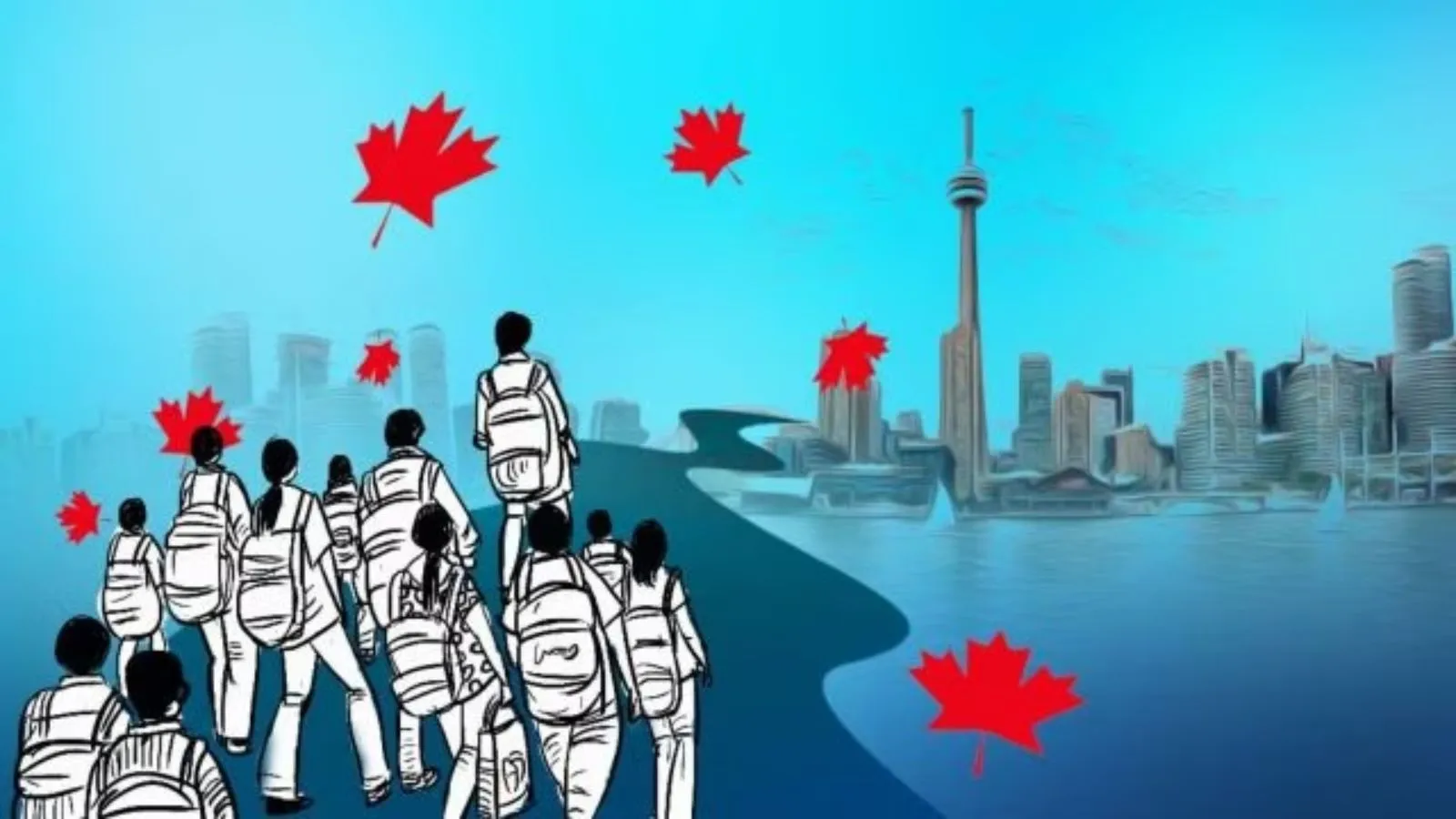Canada, renowned for its welcoming attitude towards international students, has become a hub for higher education. With over 500,000 international students enrolled in Canadian universities and colleges, the country offers a diverse range of academic programs and research opportunities. However, behind the façade of a promising future, many Indian students in Canada are struggling with unemployment, career uncertainty, and mental health issues.
The Unemployment Crisis
The Canadian job market is highly competitive, and international students often find themselves at the bottom of the priority list. Despite having excellent academic credentials, many Indian students are unable to secure jobs in their field. The unemployment rate among international students in Canada is alarmingly high, with a rate of 16.4% in 2020 (Statistics Canada). This is significantly higher than the national average of 5.7% (Statistics Canada). The lack of work experience and connections in Canada makes it difficult for international students to secure jobs, leading to a sense of hopelessness and despair.
Career Struggles
The limited job opportunities in certain fields, such as engineering and technology, have led to a surplus of qualified candidates. Many Indian students are forced to take on low-paying jobs or internships that hardly cover their living expenses. The pressure to succeed and fear of returning to India without a job or degree weigh heavily on their minds. Moreover, the feeling of being undervalued and overqualified is a common sentiment among international students, as Canadian employers often prioritize local experience over international credentials. The struggle to find employment is further exacerbated by the limited number of job opportunities in certain fields, leading to a sense of frustration and desperation.
Mental Health Concerns
The constant stress and pressure have taken a toll on the mental health of Indian students in Canada. Depression, anxiety, and stress have become their constant companions. The isolation and loneliness that come with studying abroad have exacerbated their mental health issues. Moreover, the fear of sharing their struggles with families or friends back home due to the stigma surrounding mental health has made it difficult for them to seek help. The lack of support systems and resources on campus has further contributed to their mental health struggles.
Drug Abuse: A Coping Mechanism
In this dark hour, drugs have become an escape route for many Indian students in Canada. The easy accessibility of alcohol, marijuana, and prescription drugs on campus has led to a spike in substance abuse. While drugs provide a temporary escape from emotional pain, they have also led to addiction and a downward spiral of physical and mental health issues. The stigma surrounding drug abuse has made it difficult for students to seek help, fearing judgment and rejection from their peers and family. The lack of awareness and education about drug abuse has further contributed to the problem.
Consequences of Drug Abuse
The consequences of drug abuse are far-reaching and devastating. Academic performance suffers, leading to poor grades and dropped courses. Relationships are affected, as substance abuse strains friendships and romantic relationships. Overall well-being is impacted, leading to physical health problems and mental health crises. Moreover, addiction, health problems, and criminal charges can have long-term consequences, affecting their future prospects and reputation. The financial burden of drug abuse is also significant, leading to debt and financial insecurity.
Support Systems: A Ray of Hope
There are support systems available for Indian students struggling with drug abuse and mental health issues. Counseling services, offering one-on-one therapy sessions and group counseling, provide a safe space for students to share their struggles. Support groups, providing a platform for students to connect with peers who have faced similar struggles, offer a sense of community and belonging. Helplines, offering 24/7 support for students in crisis, provide a lifeline for those struggling with substance abuse. The availability of resources and support systems on campus is crucial in helping students overcome their struggles.
Lack of Job Opportunities
- Limited job openings in certain fields
- High competition for jobs among international students
- Lack of connections and networking opportunities in Canada
- Limited work experience in Canada, making it hard to secure jobs
Career Struggles
- Feeling undervalued and overqualified
- Struggling to find employment in their field
- Settling for low-paying jobs or internships
- Feeling pressure to succeed and fear of returning to India without a job or degree
Mental Health Concerns
- Depression, anxiety, and stress
- Isolation and loneliness
- Fear of sharing struggles with families or friends back home
- Lack of support systems and resources on campus
Drug Abuse
- Easy accessibility of drugs on campus
- Temporary escape from emotional pain
- Addiction and downward spiral of physical and mental health issues
- Stigma surrounding drug abuse makes it hard to seek help
Consequences of Drug Abuse
- Poor academic performance
- Strained relationships
- Physical and mental health problems
- Addiction, health problems, and criminal charges
- Financial burden and debt
Support Systems
- Counseling services
- Support groups
- Helplines
- Resources and support systems on campus
Conclusion
The story of Indian students in Canada struggling with drug abuse is a heartbreaking one. It highlights the need for a more comprehensive approach to addressing the issues faced by international students. By providing better job opportunities, mental health support, and addiction services, we can help these students build a brighter future in Canada. We must work together to create a supportive community that encourages students to seek help without fear of judgment. Only then can we ensure that these students have a chance to thrive in Canada, rather than succumbing to the darkness of drug abuse.

